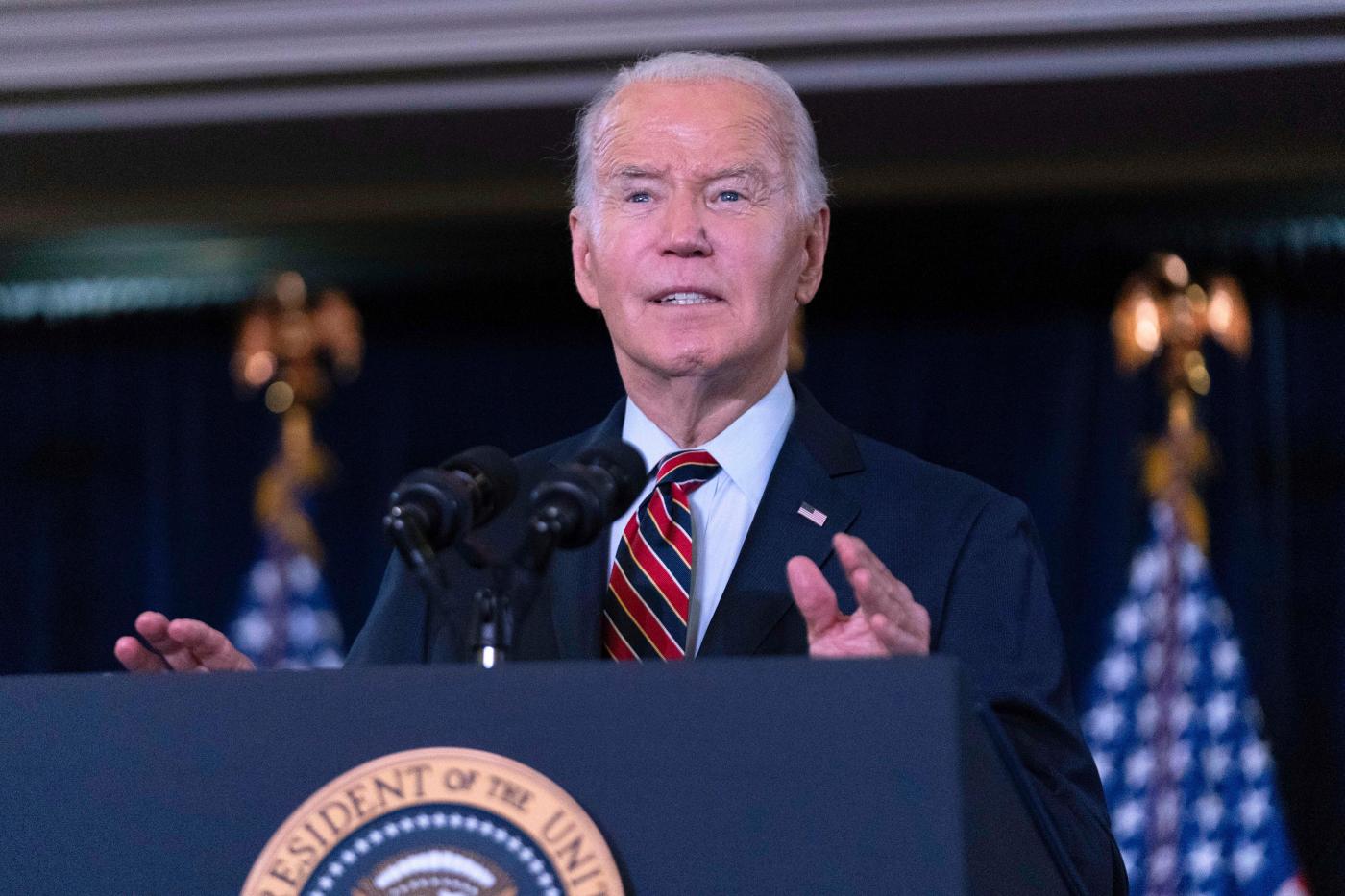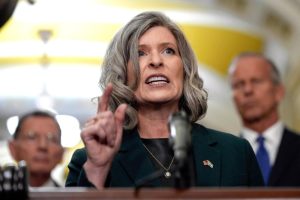On his way out the door and just before the holidays, President Joe Biden has presented some 42,000 federal workers with a generous gift: a five-year contract that protects their right to work from home for at least part of the week.
This the endgame to a saga that has been playing out for most of Biden’s tenure: the tension between the administration’s goal of improving public services and its habit of catering to public-service unions. It would be an exaggeration to say that public dissatisfaction with government services played a major role in President-elect Donald Trump’s victory. But the incoming administration’s fixation with government efficiency, however misguided, will certainly play a role going forward.
There was no controversy about federal workers going remote in 2020, during the pandemic, and it was no surprise that they remained remote when Biden was inaugurated in January 2021. But over the next few months, vaccines became widely available, and Americans returned to tourism, business travel and office work. By March 1, 2022, when Biden delivered the State of the Union, there was a clear desire to return to normal.
“It’s time for America to get back to work and fill our great downtowns again with people,” he said. “The vast majority of federal workers will once again work in person.”
Workers stay home
Yet it never happened. The White House issued various directives, and every political appointee I know was routinely in the office (and routinely complaining that the absence of so many civil servants was making their jobs harder). But despite this widespread discontent among his own appointees, Biden never got the workers back.
One reason is that civil servants overwhelmingly view the return-to-office push as a bad-faith political stunt designed to assuage critics in Congress or provide economic benefits to cities. The belief that regular presence in an office is beneficial, expressed by many managers in the private sector, doesn’t have much traction.
The larger issue is that RTO policies need to be bargained collectively with the unions representing federal workers. The job of union leaders is to win concessions for their members, so it is hardly surprising that they would argue that requiring an in-office presence is burdensome and pointless. That lets them maximize financial concessions or whatever else in exchange for going to in-person work.
Biden officials generally treated this collective bargaining situation as an external constraint on their ability to manage the federal workforce. But the president’s own appointees controlled the National Labor Relations Board.
It’s of course appropriate that a dramatic shift in working conditions should be subject to collective bargaining. But we all lived through the pandemic and saw what happened: Employers made a dramatic shift to remote work as a result of a public health emergency. The idea that this should have also created a new bargaining chit for public-sector unions doesn’t make sense. If the White House really couldn’t persuade the NLRB to treat this more sensibly, it could have tried to work with Congress to make a statutory change to require a common-sense treatment of work-from-home policies.
But the Biden administration didn’t do that, either. The president told the public that he was going to bring federal workers back and then didn’t, because deference to labor unions was the order of the day.
Purging the ‘deep state’
Under Trump, America is going to get the polar-opposite approach to remote work. Instead of policies that balance the collaborative benefits of time in office with the recruiting and retention benefits of flexibility, there will be a new regime that doesn’t really care about public-sector performance and has clearly indicated it wants to purge the “deep state” of professionalism and its perceived political enemies. To that end, being as strict as possible — in the hope that career civil servants will quit — will serve Trump’s ends.
Related Articles
Disney agrees to $233 million wage theft settlement for California’s theme park employees
Letters: Athletes’ dreams | Naïve advice | Person of the Year | Harris pride | End run
Walters: Tough love plan could end California’s unemployment insurance stalemate
Stanford graduate workers agree on first contract with university
Stanford Graduate Workers Union set to strike
That’s unfortunate. It’s clear that the technologies that powered white-collar America during the pandemic are genuinely useful. The option of working remotely at least some of the time has real value to both workers and employers. For the federal government to stick its head in the sand and pretend that Zoom doesn’t exist would be absurd. Prudent members of Congress should push back against efforts, already apparent among the president-elect’s allies, to use RTO as a hammer to destroy state capacity.
For Democrats, there will always be some friction between serving the public’s interest in efficient government services and its own interest in accommodating its supporters in public unions. These interests are not often aligned. Successful Democratic presidents, such as Bill Clinton and Barack Obama, were especially attentive to the ways in which teachers unions could be impediments to improving public education, and made a point of standing up to them.
Biden — and Biden-era Democrats — generally prioritized coalition management over such concerns. That’s why they made COVID-era work policies permanent as a giveaway to civil-service unions. It’s a decision Democrats will come to regret, as the path is now clear for Trump to wield the very real shortcomings of the status quo as a pretext for dismantling systems that Americans very much need.
Matthew Yglesias is a Bloomberg Opinion columnist. ©2024 Bloomberg. Distributed by Tribune Content Agency.












